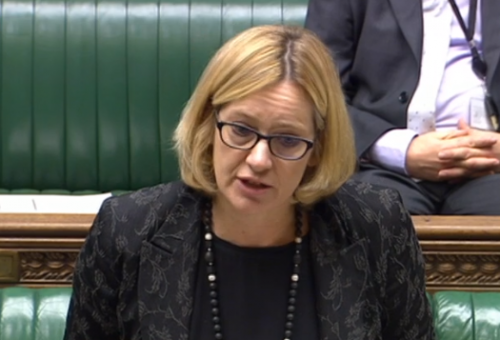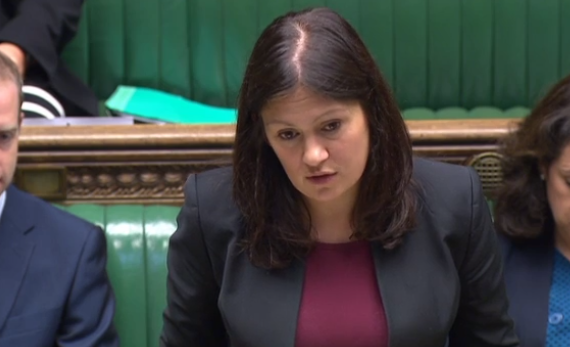

Ministers from the Department of Energy and Climate Change (DECC) have faced heavy questioning in the House of Commons on the proposed changes to the solar Feed-in Tariff.
Addressing questions from MPs on September 17, Ms. Rudd and energy and climate change minister Andrea Leadsom were forced to defend the Government’s ongoing consultation which proposes subsidy cuts of around 87% to solar by January 2016 due to “projected overspend on the scheme.”
During the questioning, Ms. Rudd said: “We had to [launch the consultation] as part of the European Commission’s requirements [for] a proper review to ensure we get the right balance for bill payers and producing more solar.
“It’s too early to say what the outcome will be, we’re only in the middle of this consultation [which ends on October 23]. We are having some very helpful replies from businesses and participants to help us work out what is the correct level of support. We do want to make sure we are careful with bill payers money while making sure we support the solar industry.
“At the front of everything this Government does is the impact on consumer bills.”
However, many members from both sides of the House questioned the impact the proposed changes could have on the solar industry, from job losses to investor confidence.
Following the publication of a report by Ernst & Young that found the UK has dropped out of the top ten places to invest in renewable energy after recent Government policy announcements, Lisa Nandy, shadow energy secretary, said: “Investors looking at the UK are scratching their heads. [They] don’t know what the Government is trying to achieve.”
Similarly, Green Party MP Caroline Lucas claimed the Government “taking yet another wrecking ball to the British solar industry with enormous subsidy cuts” would not enhance investor confidence
The same report claims projects have been cancelled as a result of Conservative Government action, with energy policy inconsistencies undermining investment.
However, Ms. Rudd and her colleague maintained that the solar sector has been “a victim of its own success”, claiming that due to the reduced cost of solar technology and its wider popularity, an early end to subsidy support could be considered.

Ms. Leadsom said: “The Government remains fully committed to our green energy future. The success of our renewables programme has exceeded our expectations which means we are comfortably on track to reach our targets.”
Amber Rudd added: “It is the aim of this Government to ensure that subsidy payment is only temporary, and solar is an area where we are hearing it could be without subsidy soon and that is something this Government really wants to encourage.
“Solar is a great opportunity for consumers and for businesses as well and I believe it will continue to flourish.”
However, the ministers continued to face questions over the damage to jobs in the solar sector. Julie Elliot, shadow energy and climate change minister, claimed an estimated 22,000 jobs could be lost in the solar sector as a direct result of DECC’s ongoing review of the Feed-in Tariff.
In response, Andrea Leadsom said the Government could not confirm any potential affects of the changes as the Feed-in Tariff review is still ongoing.
On the issue of the pre-accreditation process, which was recently scrapped, Amber Rudd said: “We had to remove pre-accreditation early as a matter of urgency in order to safeguard spends under the scheme while we carry out the Feed-in Tariff review.
Ms. Leadsom added: “We appreciate that pre-accreditation was very widely supported because it enabled people to book their tariff. The problem is there is a tension between the cost to consumers and the value of subsidies, and we need to get that balance right.”
Since the proposals to cut the Feed-in Tariff for solar projects were announced, opposition to the plans have grown. An online petition calling for DECC to urgently review its approach has gained over 20,000 signatures, forcing the Government to release a response.
In related news, the Energy and Climate Change Committee has launched a new inquiry into home energy efficiency.
The Committee’s latest investigation has been sparked by the recent closures of the Zero Carbon Homes and Green Deal policies, which came to an end without any replacement schemes.
The new inquiry will investigate what can be learned from these and previous energy efficiency schemes, with evidence received to “feed into” the Committee’s scrutiny of energy efficiency policies over the course of this Parliament.
Submissions to the inquiry can be made here by October 12.



